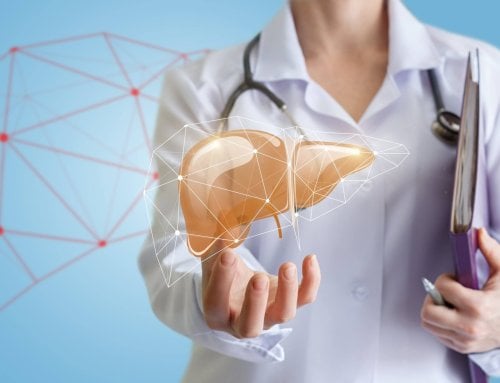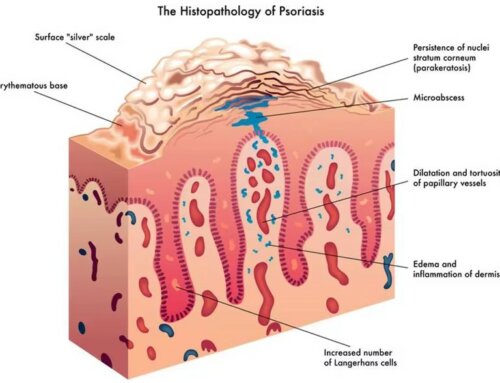Our lives changed quickly with the onset of the virus, COVID-19. Although it was recognized as a pandemic in March 2020, the first known cases appeared in the United States in late January on the west coast. Originating in China, the virus made its way around the world in record speed. Fast forward to June, and we are still missing many answers. At this point, there is no vaccine and no actual treatment. Symptoms are being treated as they appear. Since it is a “new virus” there are many unknowns.
Having diabetes adds another risk if you develop COVID-19. Let’s look at what we already know and the do’s and don’ts, when you also have diabetes.
What exactly is COVID-19?
COVID-19 is a new, previously unidentified coronavirus. It is considered a respiratory illness, although it targets many other organ systems. COVID-19 spreads from person to person through respiratory droplets such as coughing, sneezing, singing, laughing, talking or simply breathing. The virus could also be spread by touching an infected surface with your fingers and then wiping your nose, mouth or eyes.
Symptoms of COVID-19:
- Runny or stuffy nose
- Sneezing
- Dry cough
- Headache
- Fever/chills
- Body aches and pains
- Loss of taste/smell
- Nausea and diarrhea
In more severe cases:
- Shortness of breath
- Chest pain
- Mental confusion
- Bluish lips
The interesting fact is many people have no symptoms at all, but still can be spreaders. Some people exhibit mild symptoms which resemble a slight cold, while others experience a multitude of severe symptoms. Systemic organ inflammation can occur along with kidney damage, neurological changes or acute respiratory distress syndrome, commonly referred to as ARDS, which can result in death.
Who is at highest risk?
There are certain groups who are considered at higher risk for developing COVID-19. Those over age 65 have a high risk, since they usually have a depressed immune system. Those who have a compromised immune system due to HIV, Lupus, thyroid disease, cancer patients especially being treated with chemotherapy, radiation, target therapy or immunotherapy. Others at risk are those who are obese or have a chronic illness such as heart disease, lung disease (COPD), asthma, liver disease, or TYPE 1 OR 2 diabetes.
What tests are currently available?
Presently, there are two types of tests available for COVID-19. Testing decisions are made by state and local health departments as well as your own health care provider. Testing sites and locations are much more available, compared to the initial outbreak. If you think you need to be tested, consult your health care provider. They will send you to the proper site where your case can be tracked by the CDC.
- Viral test. The viral test tells you if you have a current infection. Tests require nasal swabs which travel deep into your nasal cavity or just saliva to look for viral genetic material. Currently, there are provider-administered tests as well as at-home do it yourself tests. Tests results can be returned in as little as 5 minutes or make take up to a few days. At this point, if you have symptoms, you should be tested for the virus.
- Antibody test. The antibody test tells you if you have previously had the COVID-19 virus. Currently, antibody tests are not fool-proof or recommended since they can show false negatives or false positives. It is still unclear, “if being infected once means you can’t be infected again”. Medical authorities are not even sure what to do with antibody information. Testing for antibodies uses a blood sample.
What are specific concerns if you have diabetes?
Diabetes does not make your risk higher of catching COVID-19, but it does increase the possibilities for intensified complications if it develops. There are no hard rules on if you will develop mild, moderate, severe or deadly symptoms whether you have diabetes or not. Being prepared gives you your best opportunity.
- Slow healing. You may have circulation and blood flow problems related to diabetes which slows the healing process.
- High blood sugars. Hyperglycemia or out of control blood sugars will decrease your immune response. Your body may not be able to control the spread of viral pathogens.
- Dehydration. Dehydration can occur from the virus through vomiting, fever and sweating which again raise blood sugars and makes fighting the virus more difficult.
- COVID-19 may cause damage to pancreatic islet cells, where insulin is made raising blood sugars.
- Diabetes may be a factor in a higher rate of pneumonia and uncontrollable inflammatory responses when paired with COVID-19.
- COVID -19 causes the body to suffer from an acute stress response, pouring hormones out that will raise blood sugars.
Do’s and Don’ts with COVID-19 and diabetes
Since there is no available vaccine or treatment plan at this point, the best thing you can do is understand ways to keep safe and avoid the virus. According to Dr. Fauci, from the CDC, “We hope to have hundreds of millions of doses of vaccine for COVID-19 by the beginning or middle of 2021. I am cautiously optimistic but until that time, stay diligent and stay safe.” You may find claims of “instant cures and remedies” on the internet but be wary because there is no such thing.
Let’s clear up the misconceptions and focus on the current and reliable facts.
Do’s:
- Do alert your medical professional as soon as you exhibit any symptoms of the virus or feel like you may have been exposed to the virus. The virus may appear anywhere between 2-14 days after exposure. Time is essential for proper management, especially when you have diabetes.
- Do wash your hands for at least 20 seconds using warm water and soap several times a day. Make sure to wash between your fingers, under nails and on the back of your hands. Completely dry hands with clean paper or cloth towels. If soap and water are unavailable use an alcohol-based sanitizer of 60% or more using the same guidelines.
- Do wash your hands more often than previously. This includes before every finger stick, changing sensors or tubing, taking insulin injections, or oral medications. Wash hands before food preparation/mealtime, after each trip to the bathroom, after handling mail or packages, after putting away groceries, after playing with pets, feeding pets or removing their waste, after touching foreign objects or objects frequently touched by others in your home.
- Do use online services as much as possible. You are at a high risk when going out to stores even though they have begun reopening. Being exposed to a larger group of people raises your chances of catching the virus. Order groceries, diabetes supplies and other products so they can be delivered directly to your home. Many stores are offering free shipping depending on your order size.
- Do work from home when possible. Use Skype, Zoom, Facetime or other services available to you.
- Do wear a mask or face covering when in public places. The CDC recently updated face mask recommendations and guidance. They have stated that, “cloth masks are 77% affective against the coronavirus.” N-95 masks, which remove up to 95% of large and small particles continue to be reserved for health care workers. Surgical, paper masks are disposable and only filter out large particles. They should be used only once and can get quite expensive to replace. The current recommendation for a mask used by the public is a 3-layer cloth mask (tightly woven cotton is an excellent choice) which fits comfortably over your nose, mouth and chin with ear loops. It can be washed in hot water, air dried and reused. Look for a mask that allows for a filter for added protection. Extra filters can be ordered online. Remove your mask from back to front by the ear loops. Do not touch the face portion. Wash your hands immediately after removing the mask. A face shield will offer even more protection, in addition to a mask, since it blocks your eyes from secretions and droplets. Clean your face shield with an anti-bacterial wipe after each wearing.
- Do continue to social distance. Stay at least 6 feet away from the people outside of your own home. This remains one of the most critical measures to reduce the viral spread.
- Do use a tissue when you sneeze or blow your nose. Discard the tissue immediately and wash your hands. If a tissue is unavailable, sneeze into your elbow.
- Do wear rubber gloves and a mask for protection when cleaning and using disinfectants. Make sure there is adequate ventilation when using cleaning products to protect your lungs. Make sure counters, surfaces, faucets, handles, light switches, toilet flushers and door- knobs remain wet with disinfectant before drying them. Wipe down these surfaces frequently.
- Do use wipeable covers on electronics such as phones, TV remotes and computers as much as possible.
- Do use your dishwasher instead of handwashing all dishes, cups, bowls, glasses and silverware. Use hot water to help kill germs. Do your laundry on the hottest setting and use a laundry sanitizer. Wash sheets and towels more frequently.
- Do stock up on OTC supplies such as sugar-free cough and cold remedies, tissues, and fever reducers such as Tylenol or Ibuprofen. Have a no touch thermometer, blood pressure cuff, digital scale and a fingertip pulse oximeter (measures oxygen levels) available for personal testing. You can report all findings to your physician.
- Do have extra diabetes testing strips, medications and a list of emergency phone numbers posted in your home. Do have ketone strips and glucagon if you have type 1 diabetes. Continue to test blood glucose levels frequently at home. Have a one-page health history posted in your home. Develop a support network to check on you daily, especially if you live alone.
- Do talk to your internist or endocrinologist about telemedicine (you stay in your home) visits which may work well especially if your diabetes is well-controlled. These can be done every 3 months.
- Do maintain your mental health by using essential oils, listening to music, lighting soy candles, doing meditation, joining online support groups or prayer because depression and anxiety levels could be at an all-time high. Find out what soothes you and use it often. You can also schedule a psychologist appointment by telemedicine. Stress management is critical. If you are still having problems, talk to your doctor about certain medications that may offer help.
- Do maintain a healthy lifestyle which includes a proper sleep schedule and daily aerobic exercise. Good practices increase your immune system to help fight off virus and bacteria.
- Do stock healthy and nutritious foods. If you can’t get or store fresh fruits and vegetables, then buy frozen ones. Buy complex carbohydrates sources like whole grain breads, crackers, couscous, oatmeal and simple carbohydrates such as glucose tablets or boxed fruit juices for instances of hypoglycemia. Eat nuts, seeds, canned beans and legumes. Use olive or canola oil for cooking. Cook lean protein, while adding spices and herbs. Stay hydrated with plain water. Buy in bulk, divide and freeze.
- Do ask about checking your vitamin D levels if you do not know what it is. A low vitamin D level can impair the immune system. “Adequate vitamin D appears to inhibit pulmonary and inflammatory responses to a virus and may enhance mechanisms against respiratory pathogens.” Certain foods are rich in vitamin D such as salmon, egg yolks and fortified milk. Do get plenty of fresh air and sunshine for a natural vitamin D boost. Be aware, there is no evidence that high-dose vitamin D supplementation will prevent or treat COVID-19.
- Do stay home if you are sick and avoid those people who are sick.
Don’ts:
- Don’t think that eating hot peppers or hot sauce will kill and cure the virus. There is information, “out there” stating a pepper deficiency may cause the virus, which is medically considered “nonsense.”
- Don’t drink saltwater or garlic solutions which offer no anti-viral properties.
- Don’t ingest cleaning products such as rubbing alcohol, bleach or hydrogen peroxide. As crazy as it sounds, people have been doing this to cut down the risk of the virus.
- Don’t take CBD products to prevent or treat COVID -19. There is no proof or current study by the FDA promoting CBD products for immunity purposes. If you take CBD supplements for other reasons, make sure you have informed the physician.
- Do not smoke as it impairs your immunity.
- Do not drink alcohol in excess because it can curb your immunity.
- Don’t frequent places with large crowds or limit your exposure as much as you possibly can. At this point, COVID-19 rates are still growing and with diabetes, you want to stay safe. If you decide to go to a restaurant, eat outdoors and ask for a table on the end.
- Don’t use public transportation if possible. If you must use it, try to go on off hours and carry sanitizer/wipes with you. Wash your hands as soon as you are home.
- Don’t live in constant fear and panic. Knowledge gives you power and real answers.
COVID-19 came on full speed ahead in the early part of 2020. We have already experienced radical changes in our daily lives and are still uncertain about what the future may bring. Remember, misinformation and lack of reliable information are dangerous. Stay informed from credible sources and remain prepared. Please stay safe!













Leave A Comment